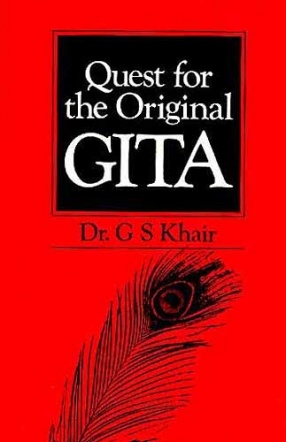The Bhagavad Gita embodies within itself much of what is best in earlier Hindu traditions and at the same time speaks to the Hindus of different times and levels of intelligence. It stands out as a historical landmark in raising the level of moral and religious insight. It helped transform a morality and religion emphasizing ceremonial magic into one appealing to intellectual assent. It aided in promoting changes from ideas of self-seeking to ideals of transcendence. It allegorically generalized tribal and ritual examples into universal, philosophical principles, thus broadening and elevating the perspectives and goals of a great people, Small wonder, then, that the Gita is one of the most written-about classics in the world.
The book "THE QUEST FOR THE ORIGINAL GITA" is not just another verse by verse commentary on the Gita nor is in essentially a philosophical examination and interpretation of its massage, though it certainly does contribute, in a very vital way, to such an understanding. It is the author’s view that many an earnest student of the Gita is confused by a certain multiplicity of concepts and the advocacy of different paths in different portions of the Gita, while what he expects is a simple central massage, as one might expect from a single, organised treatise on single theme. It is Dr. Khair’s thesis that this situation arises from the fact that the Gita was written not by one but by at least three authors who wrote at different periods, their respective portions reflection the conditions and ideas of and the tasks set by their respective ages.


There are no reviews yet.